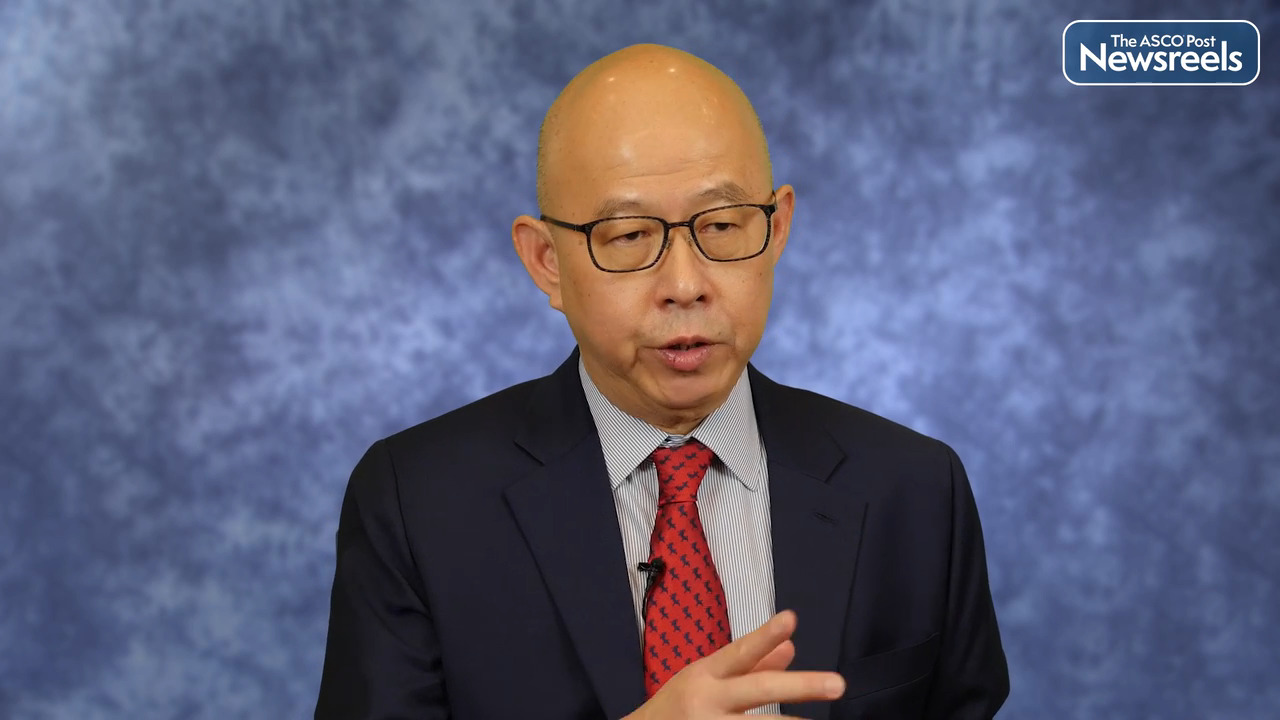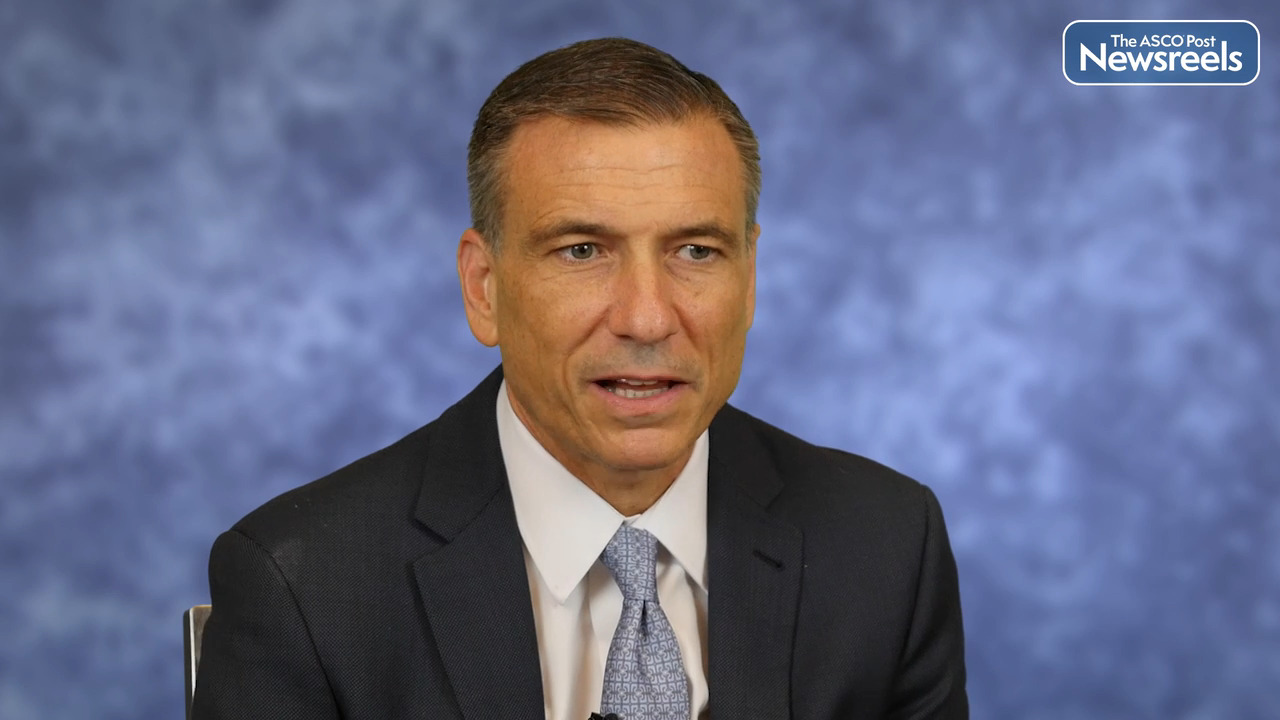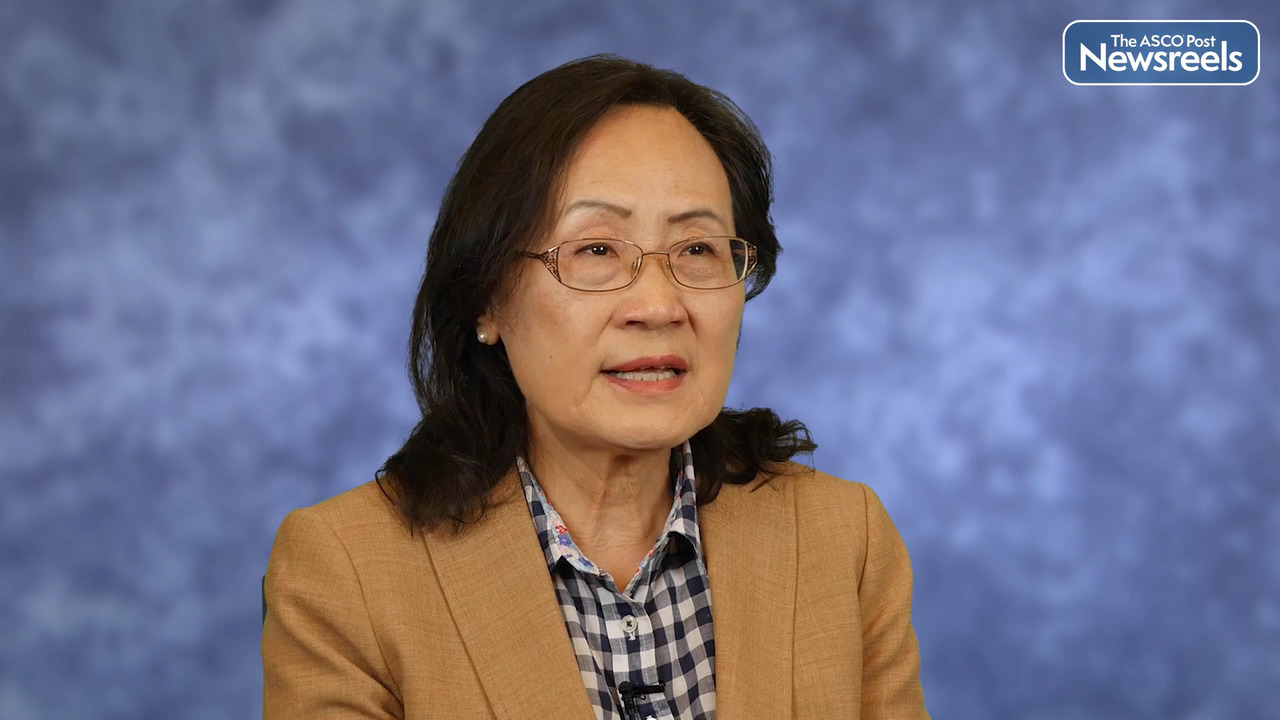Transcript
Disclaimer: This video transcript has not been proofread or edited and may contain errors.
The purpose of our study was to evaluate the safety, tolerability, and the clinical efficacy of a personalized mRNA vaccine called mRNA-4157, combined with pembrolizumab. Compared, again, in a phase two randomized study to pembrolizumab alone with a two to one randomization in this clinical trial in patients with resected high-risk melanoma who almost exclusively had stage 3C and 4 resect disease at significant and high risk of relapse.
The vaccine and pembrolizumab combination was well tolerated between the two arms. Again, vaccine plus pembrolizumab versus pembrolizumab, there were some differences in the overall toxicities, as you might expect since the vaccine itself, which of course is a neoantigen vaccine, would have some local and both vaccine related systemic side effects. And those were predominantly grade one and two. In fact, in 89% of the patients, they were grade one and two and in 11% of the patients, some of the vaccine related side effects were grade three and four.
The overall side effects of the vaccine were feverishness and chills, myalgias, muscle aches, local redness and pain, the sort of things you would expect with a covid vaccine of a similar type, meaning another messenger RNA vaccine. But again, a slight exaggeration of those side effects, but lasting 24 to 48 hours and generally well tolerated. If you look at the serious adverse events or the grade three four immune related adverse events, they're actually quite comparable between the groups suggesting that we did not see a significant augmentation of important toxicity between the combination arm and the pembrolizumab monotherapy arm.
The efficacy data were impressive. The primary endpoint to the study was investigator assessed recurrence-free survival and the hazard ratio for the difference in recurrence-free survival with approximately two years of follow-up in each arm was 0.56, of course, reflecting a 44% reduction in the risk of recurrence over time. And at 18 months, the difference in recurrence-free survival was actually 78% versus 62% in the monotherapy arm. And that's an important 16% absolute difference in recurrence-free survival.
And by the way, if you would go back to the Checkmate-238 or the Keynote-054 study and look at the say, stage 3C patients or the 3C and 4 patients in Checkmate-238, that 62% recurrence-free survival at 18 months is just about what you would expect. So that gave reassurance that the control arm performed as it had in prior large randomized trials.
Now, we also had a number of correlative marker studies. They included PDL-1 staining, and if you were PDL-1 above 1% or below, you still had benefit for the combination with a very good hazard ratio compared to the monotherapy. If you had tumor mutational burden above 10 mutations per mega base or below 10 mutations per mega base, the arbitrary cutoff, you still had benefit with actually very similar hazard ratios for benefit of the combination over single agent.
And if you looked at a RNA signature, similar to what's been seen for a number of other tumors in our melanoma study, if you had the inflammatory signature or didn't have the inflammatory signature, you still saw benefit for the combination of mRNA neoantigen vaccine with pembro versus pembro alone. So if you add it all up, it's a randomized phase two study with the caveat that it's a moderate number of patients at 157. The follow-up is two years, not five years. But given those limitations and quid pro quos, I think this is an impactful study which gives us the information that there is benefit to combining a neoantigen vaccine with pembrolizumab compared to pembrolizumab alone.
It's the first randomized study in melanoma or any cancer of a neoantigen vaccine strategy that now demonstrates clinical benefit. All prior studies are phase one and two studies that really looked at tolerability and immunogenicity. Now we have some impressive and impactful clinical benefit data, which I think will now of course lead in the next few months to a very large randomized thousand plus patient study of pembrolizumab vaccine versus pembrolizumab alone to hopefully get this combination registered.





